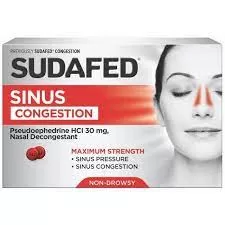In a groundbreaking revelation, a new study published in the Annals of Internal Medicine highlights the sustained effectiveness of the recombinant zoster vaccine (RZV) against herpes zoster (HZ) for up to four years after receiving two doses. The prospective cohort study, conducted between 2018 and 2022, brings positive news for vaccine recipients and health professionals alike, offering valuable insights into the long-term efficacy of RZV.
The findings from the study, based on data from the Vaccine Safety Datalink – a collaboration between the US Centers for Disease Control and Prevention (CDC) and nine healthcare systems across the country – revealed that individuals who received two doses of the vaccine experienced a notable 79% vaccine effectiveness (VE) during the first year. Impressively, this effectiveness remained at a commendable 73% even four years after vaccination.
In contrast, individuals who received a single dose of the vaccine exhibited a 70% effectiveness during the first year, which gradually declined to 52% by the fourth year. The study also observed a 65% effectiveness rate for those taking corticosteroids.
Dr. Nicola Klein, the director of the Vaccine Study Center at Kaiser Permanente in Oakland, California, who led the study, emphasized that the findings dispel concerns about the impact of delaying the second dose on the effectiveness of the herpes vaccine. The reassurance provided by the study is significant for individuals and healthcare professionals alike, offering a clearer understanding of the durability of protection provided by RZV.
Dr. Alexandra Tien, a family physician at Medical Associates of Rhode Island in Providence, highlighted the importance of a long-lasting vaccine, particularly as older adults are living longer. With life expectancies extending well into the 80s and 90s, the need for durable protection against herpes zoster becomes crucial for maintaining health and well-being.
The CDC currently recommends two doses of RZV, separated by 2-6 months, for patients aged 50 years and older. Immunocompromised adults older than 19 years should receive two doses separated by 1-2 months. Dr. Klein noted that while research does not conclusively show whether VE for RZV diminishes after four years, interim findings from another study indicate sustained high levels of effectiveness after seven years.
The risk of herpes zoster increases with age, making the long-term efficacy of the vaccine a vital aspect in promoting the health and quality of life for older adults. Complications such as postherpetic neuralgia (PHN) underscore the significance of preventive measures, with the CDC estimating that up to 18% of individuals with shingles experience PHN.
As vaccine hesitancy is sometimes influenced by concerns about potential side effects, Dr. Tien emphasized the mild nature of RZV side effects compared to the potentially severe consequences of shingles. The study, funded by the CDC, serves as a testament to the effectiveness and importance of RZV in preventing herpes zoster and its complications.









